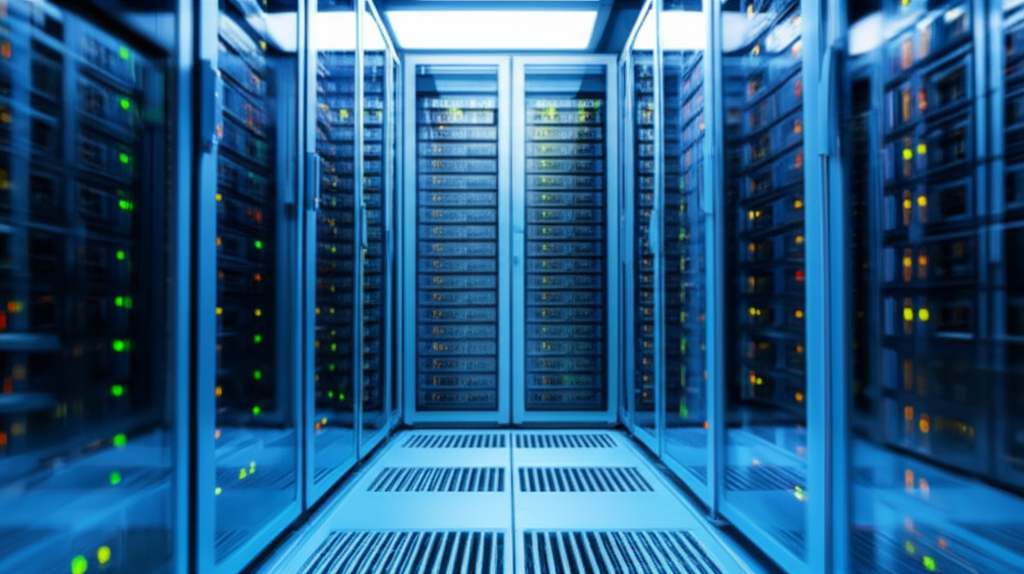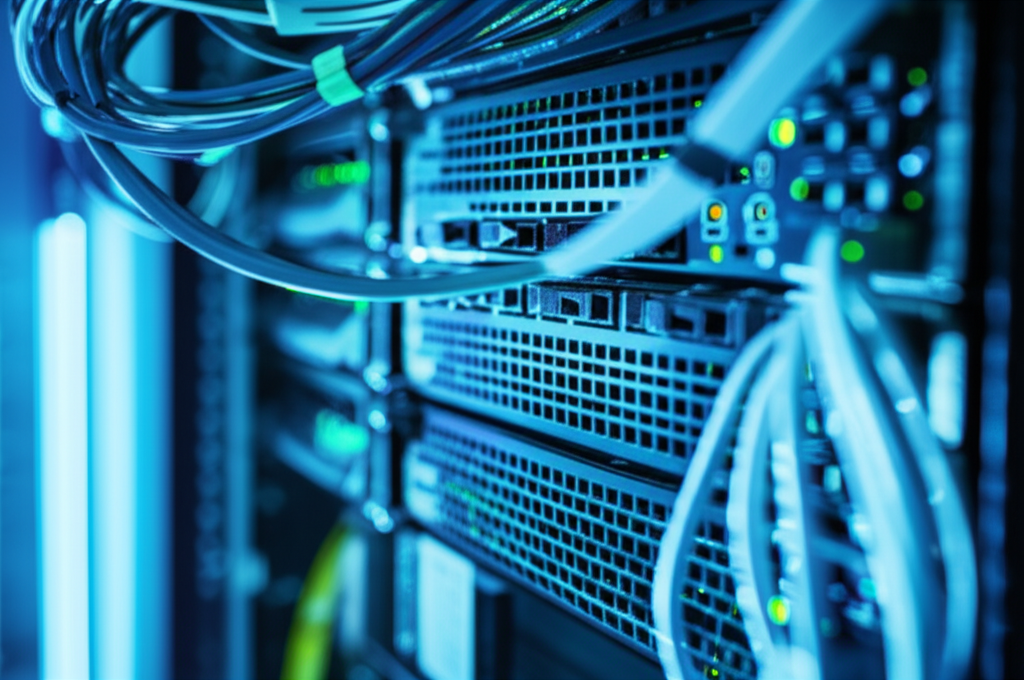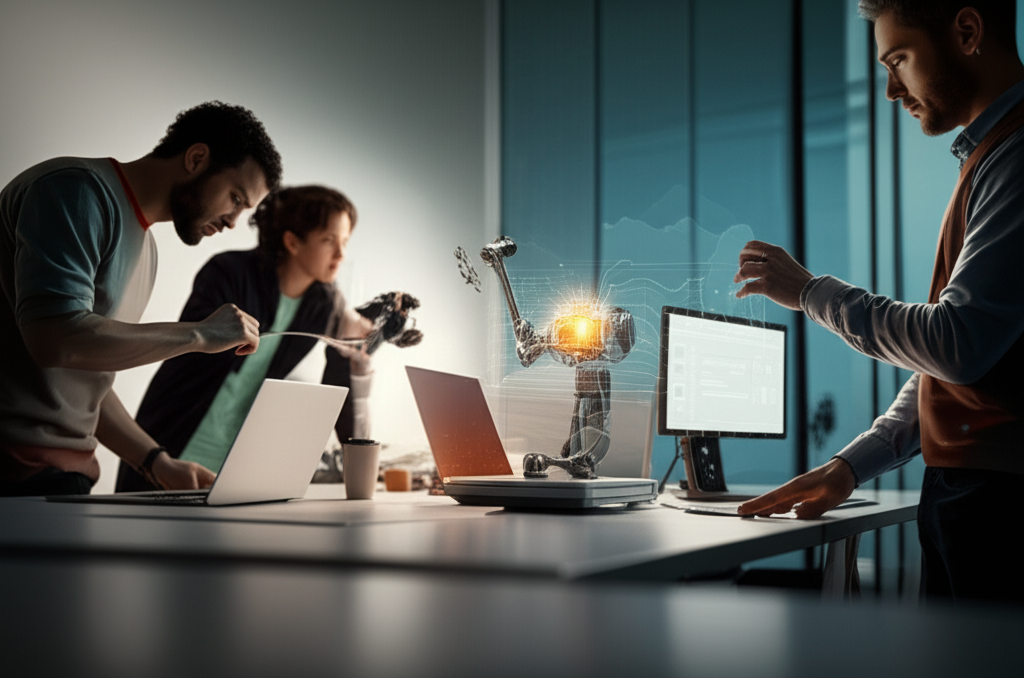
Meta Description:
Discover how AI agents will revolutionize daily life by 2025. Explore their potential impact on work, healthcare, and more. Prepare for the future now!
The Impending AI Agent Revolution
Artificial intelligence is rapidly evolving, and one of the most transformative areas is the development of AI agents. These intelligent systems are poised to redefine how we interact with technology and the world around us. By 2025, AI agents are expected to become even more sophisticated, personalized, and integrated into our daily lives, leading to advancements we can only begin to imagine.
AI agents aren’t just futuristic concepts; they are quickly becoming a reality. From virtual assistants to autonomous vehicles, the groundwork for widespread adoption is already being laid. The next few years will see these agents evolving from simple task-performers to proactive problem-solvers, capable of learning, adapting, and even anticipating our needs.
What Exactly Are AI Agents?
At their core, AI agents are autonomous entities designed to perceive their environment, make decisions, and take actions to achieve specific goals. These agents leverage machine learning, natural language processing, and other AI technologies to understand complex data and respond intelligently. They can operate in digital environments, physical spaces, or a combination of both.
– An AI agent is not just a piece of software; it’s an intelligent entity capable of learning and adapting.
– They can process information from various sources, including sensors, databases, and user inputs.
– Unlike traditional programs, AI agents can make decisions independently, without explicit instructions for every scenario.
Key Capabilities of Advanced AI Agents
Several key capabilities set advanced AI agents apart from earlier AI systems. These capabilities will become even more refined and impactful by 2025.
1. **Learning and Adaptation:** AI agents can learn from new data and experiences, improving their performance over time. This adaptive capability is crucial for handling unpredictable situations and optimizing outcomes.
2. **Natural Language Understanding:** Advanced AI agents can understand and respond to human language, making interactions more intuitive and seamless. This includes understanding context, intent, and even sentiment.
3. **Decision-Making and Problem-Solving:** AI agents can analyze complex data sets, identify patterns, and make informed decisions to solve problems. This is particularly valuable in fields like finance, healthcare, and logistics.
4. **Autonomy and Proactivity:** AI agents can operate autonomously, without constant human supervision. They can also proactively identify opportunities and take action to achieve goals.
The Impact of AI Agents on Daily Life by 2025
By 2025, AI agents will likely be seamlessly integrated into various aspects of our daily routines, enhancing efficiency, convenience, and overall quality of life. The scale of impact may come as a surprise to many.
– **Personalized Healthcare:** AI agents will assist in monitoring patients’ health, providing personalized treatment recommendations, and even assisting in surgeries. Imagine AI-powered diagnostic tools that can detect diseases earlier and more accurately.
– **Smarter Homes and Cities:** AI agents will optimize energy consumption, manage traffic flow, and enhance public safety. Smart homes will anticipate our needs, adjusting lighting, temperature, and entertainment based on our preferences.
– **Enhanced Productivity at Work:** AI agents will automate repetitive tasks, assist in decision-making, and facilitate collaboration. This will free up human workers to focus on more creative and strategic activities.
– **Improved Customer Service:** AI-powered chatbots will provide instant, personalized support to customers, resolving issues quickly and efficiently. This will lead to higher customer satisfaction and loyalty.
Transformative Applications Across Industries
Beyond personal applications, AI agents are poised to revolutionize numerous industries by 2025, driving innovation and creating new opportunities.
– **Finance:** AI agents can detect fraudulent transactions, manage investment portfolios, and provide personalized financial advice. This will lead to more secure and efficient financial systems.
– **Manufacturing:** AI agents can optimize production processes, predict equipment failures, and improve quality control. This will result in higher productivity and reduced costs.
– **Transportation:** Autonomous vehicles, powered by AI agents, will transform transportation, making it safer, more efficient, and more accessible. This will reduce traffic congestion and improve air quality.
– **Education:** AI agents can personalize learning experiences, provide tutoring, and automate administrative tasks. This will lead to more effective and engaging education for students of all ages.
According to a report by McKinsey, AI technologies, including AI agents, could contribute up to $13 trillion to the global economy by 2030.
Challenges and Considerations for Widespread Adoption
While the potential of AI agents is immense, there are also several challenges and considerations that need to be addressed to ensure their responsible and ethical deployment.
– **Data Privacy and Security:** AI agents rely on vast amounts of data to learn and operate. Protecting this data from unauthorized access and misuse is crucial. Robust security measures and data privacy regulations are essential.
– **Ethical Considerations:** AI agents make decisions that can have significant impacts on individuals and society. Ensuring that these decisions are fair, unbiased, and aligned with human values is paramount.
– **Job Displacement:** The automation capabilities of AI agents could lead to job displacement in some industries. Addressing this requires proactive measures, such as retraining programs and social safety nets.
– **Trust and Transparency:** Building trust in AI agents requires transparency in their decision-making processes. Understanding how AI agents arrive at their conclusions is crucial for fostering acceptance and adoption.
Preparing for the Future with AI Agents
As we move closer to 2025, it’s important to prepare for the widespread adoption of AI agents. This includes:
1. **Investing in Education and Training:** Equip individuals with the skills needed to work alongside AI agents and adapt to changing job markets.
2. **Developing Ethical Guidelines:** Establish clear ethical guidelines for the development and deployment of AI agents.
3. **Promoting Collaboration:** Foster collaboration between researchers, policymakers, and industry leaders to address the challenges and opportunities presented by AI agents.
4. **Staying Informed:** Keep abreast of the latest developments in AI and AI agents to understand their potential impact and prepare for the future.
Embrace the AI Agent Revolution
The transformative power of AI agents by 2025 is undeniable. From revolutionizing industries to simplifying daily tasks, these intelligent systems promise a future filled with unprecedented possibilities. While challenges remain, proactive preparation and ethical considerations will pave the way for responsible and beneficial integration into our lives. The age of AI agents is upon us, and embracing this revolution is key to unlocking a smarter, more efficient, and more connected world.
For more insights or collaboration opportunities, visit www.agentcircle.ai.






